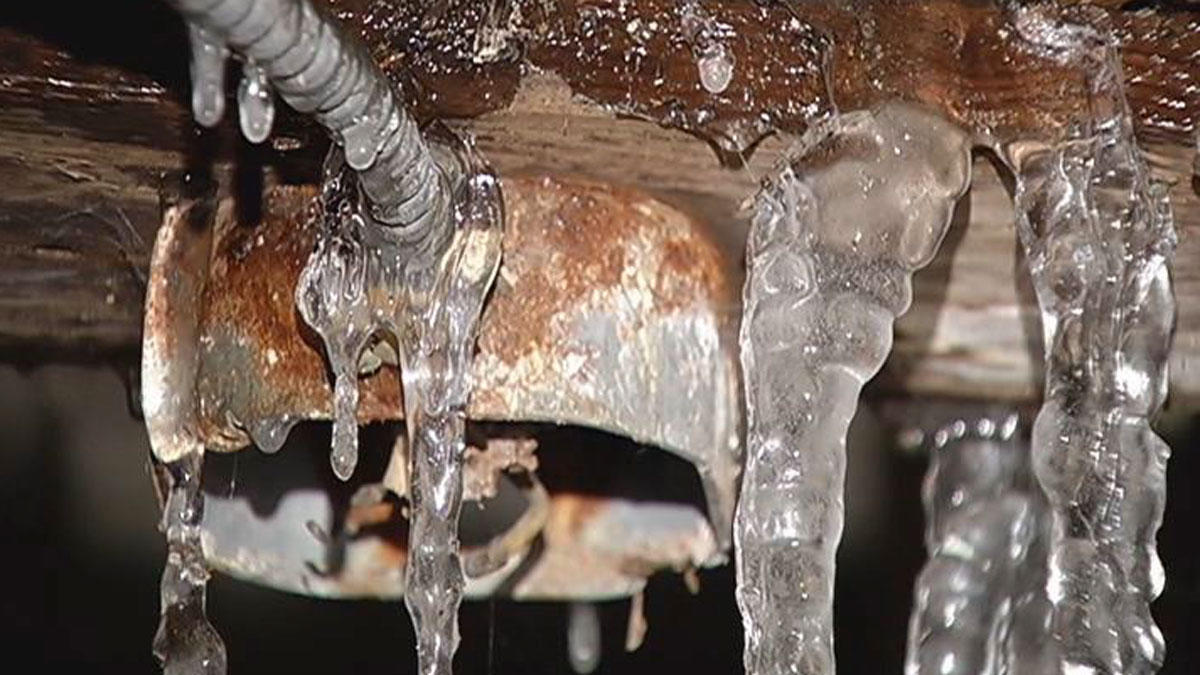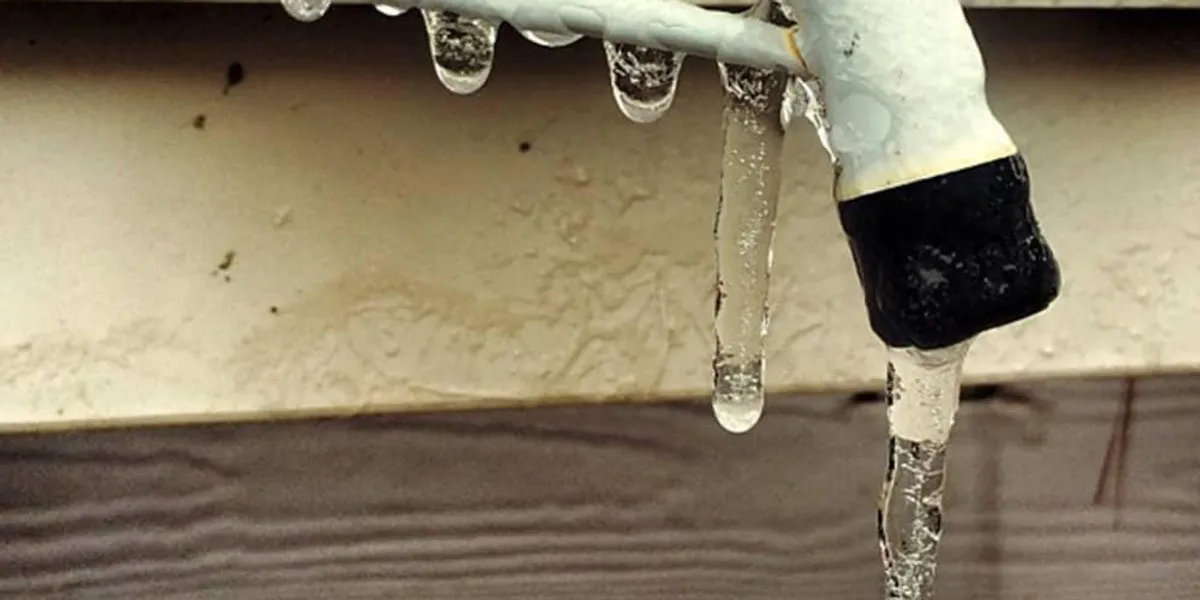Tips to Defend Your Plumbing from Freezing: Critical Strategies
Tips to Defend Your Plumbing from Freezing: Critical Strategies
Blog Article
What're your thoughts about How To Avoid Freezing Pipes?

Cold weather can ruin your pipes, specifically by freezing pipes. Here's exactly how to prevent it from taking place and what to do if it does.
Intro
As temperatures drop, the danger of icy pipelines rises, possibly causing pricey fixings and water damage. Understanding exactly how to stop frozen pipes is essential for house owners in cool climates.
Prevention Tips
Protecting susceptible pipes
Wrap pipelines in insulation sleeves or utilize warm tape to secure them from freezing temperatures. Concentrate on pipes in unheated or exterior locations of the home.
Heating methods
Maintain indoor spaces appropriately heated up, especially locations with plumbing. Open up cupboard doors to permit cozy air to circulate around pipes under sinks.
Just how to determine icy pipes
Look for reduced water circulation from faucets, uncommon smells or noises from pipelines, and noticeable frost on subjected pipelines.
Long-Term Solutions
Architectural adjustments
Think about rerouting pipelines far from outside walls or unheated locations. Add extra insulation to attics, cellars, and crawl spaces.
Updating insulation
Buy top notch insulation for pipelines, attics, and walls. Appropriate insulation helps keep consistent temperatures and minimizes the threat of frozen pipes.
Shielding Outside Plumbing
Garden pipes and outdoor taps
Detach and drain garden hose pipes before winter. Set up frost-proof faucets or cover exterior taps with insulated caps.
Comprehending Frozen Pipelines
What causes pipes to freeze?
Pipes freeze when revealed to temperature levels listed below 32 ° F (0 ° C) for expanded durations. As water inside the pipelines freezes, it broadens, putting pressure on the pipeline wall surfaces and possibly triggering them to burst.
Threats and damages
Frozen pipelines can result in water disturbances, home damages, and pricey repair work. Burst pipelines can flood homes and trigger considerable structural damage.
Indications of Frozen Pipes
Identifying icy pipes early can prevent them from rupturing.
What to Do If Your Pipelines Freeze
Immediate activities to take
If you believe icy pipes, maintain faucets available to alleviate stress as the ice melts. Utilize a hairdryer or towels taken in warm water to thaw pipelines slowly.
Final thought
Avoiding frozen pipelines requires positive steps and fast reactions. By understanding the causes, indications, and preventive measures, house owners can safeguard their pipes during cold weather.
Helpful Tips to Prevent Frozen Pipes this Winter
UNDERSTANDING THE BASICS: WHY PIPES FREEZE AND WHY IT’S A PROBLEM
Water freezing inside pipes is common during the winter months, but understanding why pipes freeze, and the potential problems it can cause is crucial in preventing such incidents. This section will delve into the basics of why pipes freeze and the associated problems that may arise.
THE SCIENCE BEHIND FROZEN PIPES
When water reaches freezing temperatures, it undergoes a physical transformation and solidifies into ice. This expansion of water as it freezes is the primary reason pipes can burst. As the water inside the pipe freezes, it expands, creating immense pressure on the walls. If the pressure becomes too great, the pipe can crack or rupture, leading to leaks and water damage.
FACTORS THAT CONTRIBUTE TO PIPE FREEZING
Low Temperatures: Extremely cold weather, especially below freezing, increases the risk of pipes freezing. Uninsulated or Poorly Insulated Pipes: Pipes located in unheated areas, such as basements, crawl spaces, or attics, are more prone to freezing. Insufficient insulation or lack of insulation altogether exacerbates the problem. Exterior Wall Exposure: Pipes running along exterior walls are susceptible to freezing as they encounter colder temperatures outside. Lack of Heating or Temperature Regulation: Inadequate heating or inconsistent temperature control in your home can contribute to frozen pipes. PROBLEMS CAUSED BY FROZEN PIPES
- Pipe Bursting: As mentioned earlier, the expansion of water as it freezes can cause pipes to burst, resulting in significant water damage.
- Water Damage: When pipes burst, it can lead to flooding and water damage to your property, including walls, ceilings, flooring, and personal belongings.
- Structural Damage: Prolonged exposure to water from burst pipes can compromise the structural integrity of your home, leading to costly repairs.
- Mold and Mildew Growth: Excess moisture from water damage can create a favorable environment for mold and mildew growth, posing health risks to occupants.
- Disrupted Water Supply: Frozen pipes can also result in a complete or partial loss of water supply until the issue is resolved.
WHY CERTAIN PIPES ARE MORE PRONE TO FREEZING
- Location: Pipes located in unheated or poorly insulated areas, such as basements, crawl spaces, attics, or exterior walls, are at higher risk of freezing.
- Exterior Pipes: Outdoor pipes, such as those used for irrigation or exposed plumbing, are particularly vulnerable to freezing as they are directly exposed to the elements.
- Supply Lines: Pipes that carry water from the main water supply into your home, including the main water line, are critical to protect as freezing in these lines can affect your entire plumbing system.
- Underground Pipes: Pipes buried underground, such as those connected to sprinkler systems or outdoor faucets, can be susceptible to freezing if not properly insulated.
https://busybusy.com/blog/helpful-tips-to-prevent-frozen-pipes-this-winter/

I have been very involved in 6 Ways to Prevent Frozen Pipes and I'm hoping you enjoyed the piece. Be sure to take a moment to distribute this post if you enjoyed it. We recognize the value of reading our article about How to Prevent Your Pipes From Freezing.
Further Details Report this page